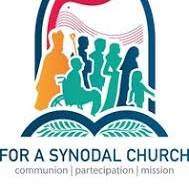The Catholic Times' View from the Ark column, written by a research assistant and professor of Life Science at the Catholic University of Korea, shares her thoughts on the "assisted death with dignity movement."
In Korea, there has been a recent movement to legislate ‘assisted death with dignity’. At first glance, ‘assisted death with dignity’ sounds like it means receiving assistance and dying with dignity, but in reality, it means suicide with the aid of a doctor.
This is a distortion of language. The background of physician-assisted suicide, called euthanasia with dignity, began in the United States in 1972 when the governor of Oregon started promoting the movement.
He strategically used the expression ‘death with dignity’ to reduce opposition from citizens and the legislature and gain support. In the end, Oregon successfully legalized physician-assisted suicide in 1994 by packaging the meaning of physician-assisted suicide with dignity and mercy, and it has been legal since 1997.
In Korea, confusion over the term ‘death with dignity’ began when the media reported ‘withdrawal and suspension of life-sustaining treatment’ as euthanasia or passive euthanasia. Since then, there has been a movement to immediately equate the decision to terminate life-sustaining treatment with death and to overlook the fact that “even if life-sustaining treatment is withheld or suspended, beneficial and necessary medical treatment and basic care continue for the patient.” [The Catholic Viewpoint— we all have the freedom if it is medically decided that one will die in a short period, and life support treatment would only delay the moment of death, to refuse life support treatment]
With the revision of the Life-sustaining Treatment Decision demanded in 2022, expressions that considered physician-assisted suicide as a death with dignity began to be used interchangeably, and the misuse is becoming increasingly severe. This confusion of terms not only obscures the word's original meaning but also carries the serious risk of distorting social perceptions of life and death.
According to the “Trends and Tasks of Well-dying Discussions for Preparing for Future Society,” published by the Korea Institute for Health and Social Affairs in December 2024, 82% of Koreans are in favor of physician-assisted suicide, which is expressed as assisted euthanasia. However, a closer look at the survey reveals surprising results. The top five services that the public “needs most to achieve a good death” are: first, relief of pain that may occur during the end-of-life period; second, support for the cost of treatment for patients at the end-of-life; third, psychological and emotional support for patients at the end-of-life and their families; fourth, strengthening of end-of-life medical care that can be received at home; and fifth, improving the quality of medical services received during the end-of-life period.
This shows that there are still many people who believe that “life is sacred and no one can dispose of life at will.” Modern medicine has reached a level where it can sufficiently relieve most pain, and many people agree that care and support are essential during the end-of-life period. So why do they package physician-assisted suicide and euthanasia as “death with dignity” and appear impatient because they cannot legislate it?
The government is investing a considerable amount of money to solve the low birth rate problem. Still, it is not paying enough attention to specific and realistic support for those living at the end of life. In this reality, we need to reflect on whether we are not gradually diluting the essential value of ‘communion and solidarity among people’ by being influenced by the tendency to evaluate life solely based on usefulness and productivity.
A person's life is an epic narrative that cannot be captured in a single book. We need to reclaim the meaning of “death with dignity.” What can we do?
First, if you hear the media, legislators, or government officials refer to physician-assisted suicide and euthanasia as “dignified death,” we need to point out clearly and respectfully that this is inaccurate. Legislators and policymakers should also recognize that support for physician-assisted suicide is not simply a vote of “yes,” but rather a reflection of our society's institutional deficiencies and lack of care.






